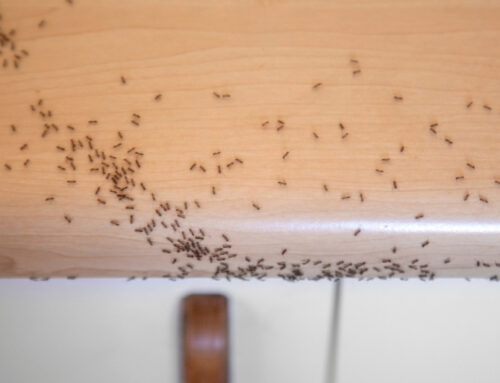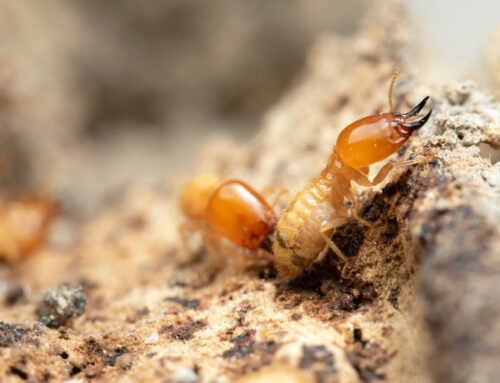Spring in Waterloo, IA, and the surrounding areas brings bees, wasps, and mosquitoes out of hibernation, increasing their activity around homes and businesses. Effective spring pest control during this season is vital to prevent these pests from becoming more than just nuisances; they can be serious hazards.
This guide will highlight the common spring pests and provide practical steps for managing and preventing them. By being proactive, you can ensure your property remains safe and pest-free, letting you enjoy the season without the worry of unwelcome guests.
Common Spring Pests to Keep an Eye On
Spring brings a surge in pest activity. Recognizing and understanding these seasonal invaders are key to effective control:
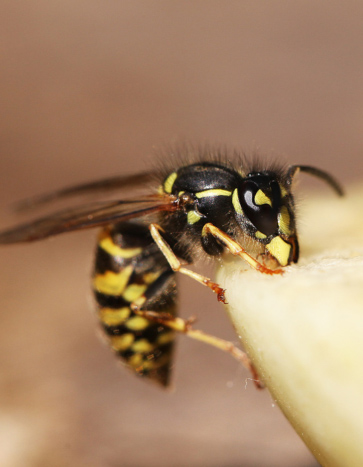
WASPS
With spring, wasps become more prevalent, often constructing new colonies in residential areas, including wall cavities and roof spaces. Their aggressive nature and territorial behavior can pose risks, especially near human activity, making their management crucial for safety, particularly where children and pets are present.
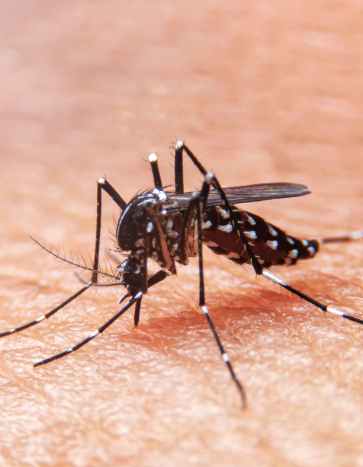
MOSQUITOES
Spring’s warmth and moisture create ideal conditions for mosquitoes, notorious for their irritating bites and as vectors for diseases like West Nile and Zika viruses. Their rapid breeding in even minimal standing water, such as bird baths or blocked gutters, heightens their threat, necessitating vigilant control and prevention in these environments.
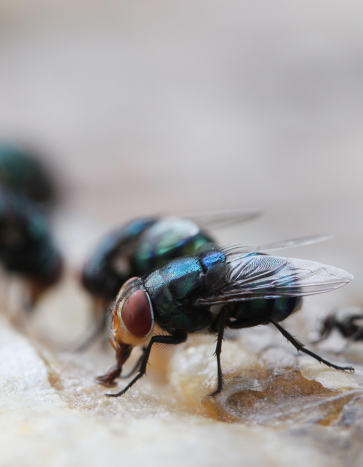
FLIES
The warmer weather of spring attracts flies, which are drawn to food residues, waste, and stagnant water. Their quick breeding during this season often results in infestations that can escalate health risks, as they transmit diseases like salmonella and E. coli. More than mere annoyances, flies pose a health threat by contaminating food and surfaces after contacting decaying materials and waste.
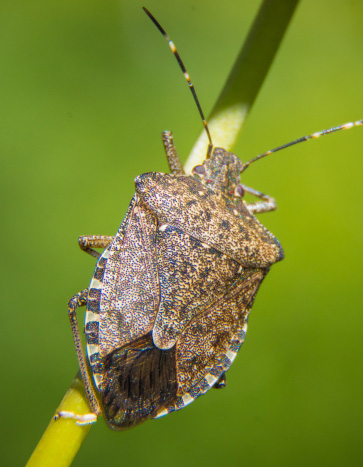
STINK BUGS
Stink bugs reappear in spring, leaving their winter shelters to find food and warmth. Known for the foul odor they emit when distressed, they pose little direct harm to humans but can invade homes in large numbers, becoming a significant nuisance. Besides being bothersome, they also threaten gardens and ornamental plants with their feeding habits.
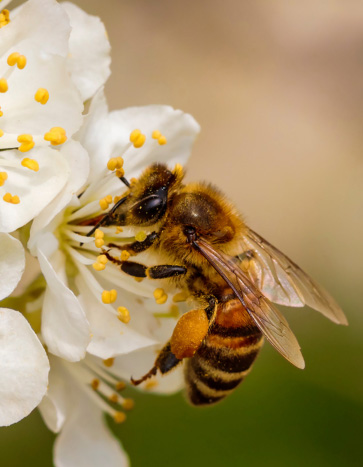
BEES
Spring awakens bees as flowers bloom, highlighting their vital role in pollination. Their increased activity can lead to more human interactions and potential nest formations in or around homes. Bees are beneficial to ecosystems but can be problematic in residential areas, especially for people allergic to bee stings, necessitating careful management during these months.
Early Detection and Prevention Tips for Spring Pests
Identifying early signs of pest activity in Waterloo, IA, and the surrounding areas is key to keeping your springtime pest-free. We’re here to help you spot these signs and take preventive actions to keep pests at bay.
Signs of Infestation:
Preventive Measures for Spring Pests:
Identifying early signs of pest activity is key to keeping your springtime pest-free. We’re here to help you spot these signs and take preventive actions to keep pests at bay.
Integrated Pest Management for Spring
Learn how Integrated Pest Management (IPM) can enhance your spring pest control strategy with smarter, safer, and more sustainable solutions. Explore IPM’s role in maintaining a pest-free environment during the spring season.
What is Integrated Pest Management (IPM)?
IPM is a comprehensive approach that uses various methods to control pests effectively while minimizing health, environmental, and economic risks. Key components of IPM include:
Implementing IPM at Home
Integrating IPM into your home pest control strategy effectively combines eco-consciousness with efficacy. Here’s how to do it right:
By adopting IPM, you’re not just tackling immediate pest issues but also fostering a sustainable living environment, prioritizing long-term effectiveness and ecological health.
DIY Pest Control vs. Professional Services
Explore the trade-offs between handling pest control yourself and enlisting professionals, ensuring you choose the option that fits your situation and goals.
Pros and Cons of DIY Pest Control
Pros:
Cons:
Pros and Cons of Professional Services
Pros:
Cons:
Knowing When to Call Pest Control Experts
Sometimes, figuring out when to seek professional pest control can be challenging. Here are some signs that it’s time to call in the experts:
Deciding between DIY pest control and professional help is more than a practical choice—it affects your peace of mind and home safety. Knowing when to take action yourself and when to call in the experts is key to a secure and lasting pest-free environment.
This decision should be guided by a thorough understanding of the pest problem and the solutions available, ensuring both immediate relief and long-term protection for your space.
Spring Pest Control Tips and Seasonal Strategies
Each season has unique pest challenges, but with proactive planning and the right tactics, maintaining a pest-free home all year is achievable. Here are season-specific tips and tricks to enhance your pest control measures:
Spring:
Summer:
Fall:
Winter:
Want a pest-free home all year? Our seasonal pest control guide gives you the power to shield your space effectively. These easy-to-follow tips ensure your home remains a cozy haven, free from unwelcome guests.
Just remember, staying proactive with season-specific actions is the secret to keeping pests out and ensuring your home is always a comfortable place to be.
Take Action Against Spring Pests and Protect Your Home
Don’t let pests take over—preemptive action is key to maintaining a safe, pest-free home:
Discover a pest-free living experience with Bobcat Wildlife & Pest Control in Waterloo, IA. Our expertise guarantees comfort and security all year round in Waterloo, IA, and the surrounding areas. Schedule a consultation today to keep your home safe and enjoyable in every season.

About the Author
Blake Marshall, Owner/Operator of Bobcat Wildlife and Pest Control, Waterloo. A skilled tradesman turned pest expert, Blake launched the franchise in 2020. With a motto of excellence, he ensures superior pest solutions in Waterloo and beyond. His dedication and diverse experience make Bobcat a trusted choice for wildlife and pest management.

